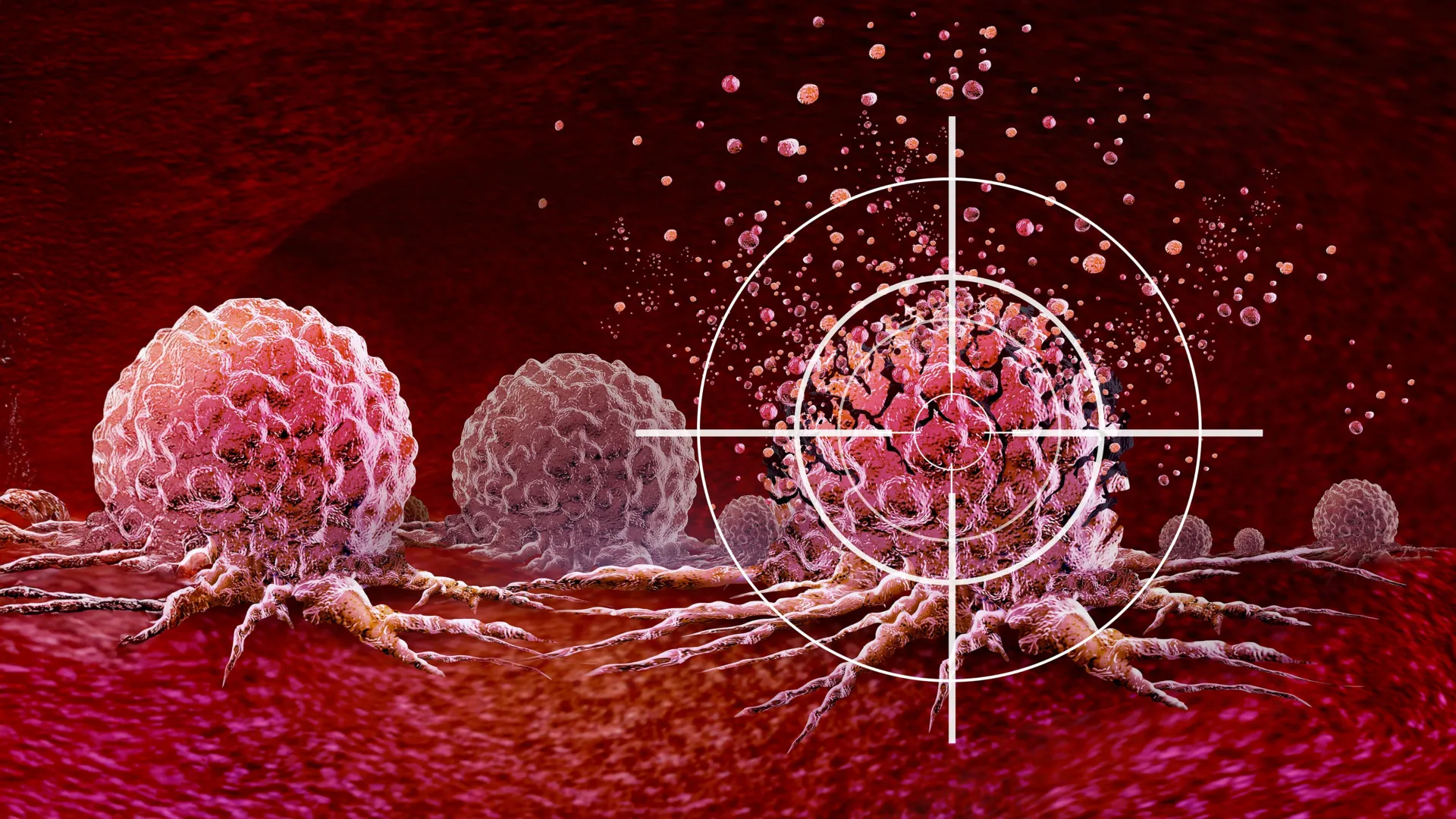Health
Researchers Develop Targeted Drug to Attack Cancer’s RNA Weakness

Researchers at the Hebrew University of Jerusalem have created a groundbreaking drug that specifically targets and eliminates a little-known RNA molecule crucial for the survival of some cancer cells. This innovative approach, introduced on November 13, 2025, could pave the way for new cancer treatments that focus on the genetic underpinnings of the disease rather than its visible symptoms.
The drug, developed through a technique called RIBOTAC (Ribonuclease-Targeting Chimera), identifies and dismantles TERRA, an RNA molecule essential for maintaining chromosome stability. When TERRA functions abnormally, it can lead to uncontrolled cell growth and division, a hallmark of various cancers, including specific brain and bone tumors.
Mechanism of Action
The research team, consisting of Dr. Raphael I. Benhamou, Elias Khaskia, and Dipak Dahatonde from the university’s Faculty of Medicine, designed a small molecule capable of recognizing a unique structural feature of TERRA known as a G-quadruplex. This folded configuration allows the RIBOTAC molecule to recruit the natural enzyme RNase L, which then breaks down the RNA within cancer cells, effectively acting as a precision tool against malignant growth.
Dr. Benhamou described their creation as “a guided missile for bad RNA,” emphasizing its capability to target TERRA without damaging healthy RNA within the cell. Initial tests using cancer cell lines, including HeLa and U2OS cells, demonstrated that the treatment significantly reduced TERRA levels and impeded cancer cell proliferation.
Implications for Future Treatments
This research signifies a potential shift in cancer therapy, suggesting that future medications could directly target RNA molecules rather than primarily focusing on proteins, which are the target of most existing drugs. “This is a new way of thinking about medicine,” Dr. Benhamou stated. “By learning how to target the RNA that controls proteins, we may be able to treat diseases previously thought impossible to approach.”
The findings, published in the journal Advanced Sciences, highlight the promise of RNA-targeting therapies. This innovative direction could significantly enhance the arsenal of treatments available for cancer patients, offering hope for more effective interventions based on the molecular mechanisms of disease.
As research continues, the implications of this work could reshape cancer treatment paradigms, moving towards a more precise and genetically-informed approach to combating cancer at its core. The ability to disrupt the RNA that fuels tumor growth may not only improve outcomes for patients but also expand the understanding of how similar strategies could be applied to other diseases.
-

 Technology5 months ago
Technology5 months agoDiscover the Top 10 Calorie Counting Apps of 2025
-

 Health3 months ago
Health3 months agoBella Hadid Shares Health Update After Treatment for Lyme Disease
-

 Health3 months ago
Health3 months agoErin Bates Shares Recovery Update Following Sepsis Complications
-

 Technology4 months ago
Technology4 months agoDiscover How to Reverse Image Search Using ChatGPT Effortlessly
-

 Technology1 month ago
Technology1 month agoDiscover 2025’s Top GPUs for Exceptional 4K Gaming Performance
-

 Technology3 months ago
Technology3 months agoElectric Moto Influencer Surronster Arrested in Tijuana
-

 Technology5 months ago
Technology5 months agoMeta Initiates $60B AI Data Center Expansion, Starting in Ohio
-

 Technology5 months ago
Technology5 months agoRecovering a Suspended TikTok Account: A Step-by-Step Guide
-

 Health4 months ago
Health4 months agoTested: Rab Firewall Mountain Jacket Survives Harsh Conditions
-

 Lifestyle5 months ago
Lifestyle5 months agoBelton Family Reunites After Daughter Survives Hill Country Floods
-

 Health3 months ago
Health3 months agoAnalysts Project Stronger Growth for Apple’s iPhone 17 Lineup
-

 Technology4 months ago
Technology4 months agoHarmonic Launches AI Chatbot App to Transform Mathematical Reasoning













